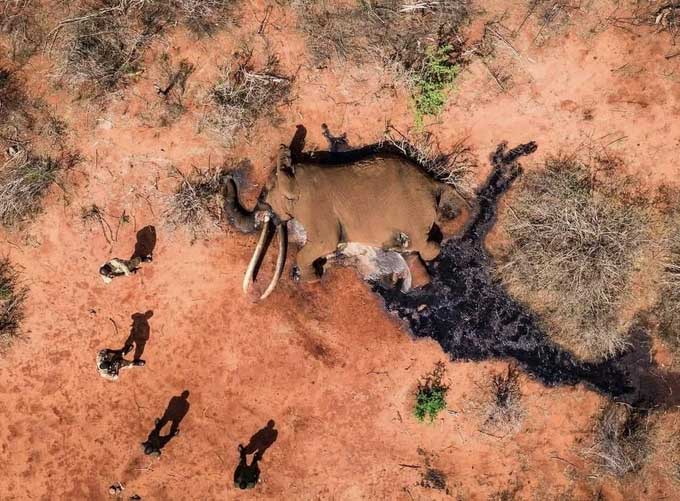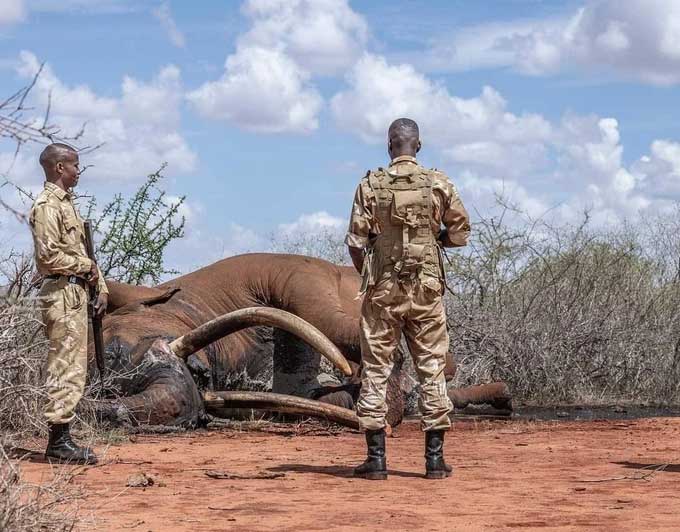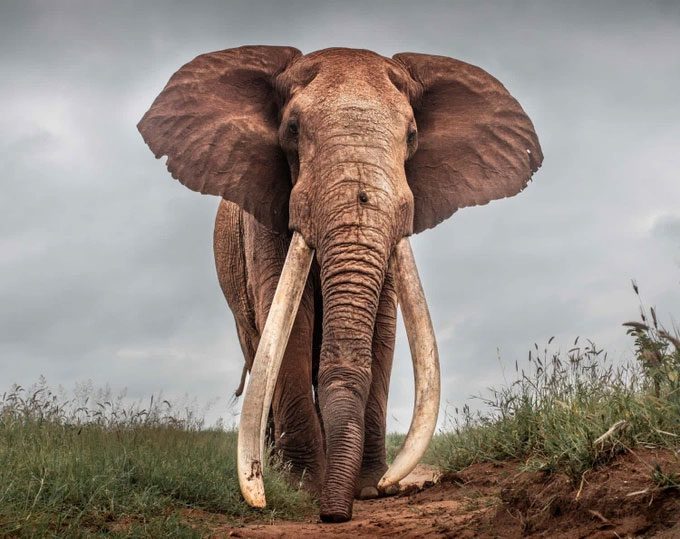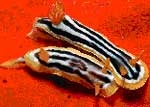Lugard, the elephant with the enormous tusks believed to be the largest in the world, has passed away at the age of 53 due to natural causes. The death of this famous elephant has left many nature lovers in mourning.
Lugard was one of the few remaining super tuskers in the Tsavo Nature Reserve in Kenya. Super tuskers are elephants with a genetic mutation that results in exceptionally long tusks that touch the ground, with each tusk weighing up to 50 kg.
On November 23, the body of Lugard was discovered by pilot Joseph Kimaile and a ranger while they were conducting a routine aerial surveillance flight over the Tsavo National Park.


The body of super tusker Lugard. This elephant passed away at the age of 53 due to natural causes. (Photo: Tsavo Trust).
The Kenya Wildlife Service and the Tsavo National Park rangers arrived at the location where Lugard’s body was found to verify the information.
The cause of Lugard’s death was determined to be natural, however, wildlife experts noted that the severe drought in Tsavo over the past few months has contributed to the natural death of this elephant.
At the time of his passing, Lugard was confirmed to be 53 years old. In the wild, African elephants can live up to 60 years for males or 45 years for females, although some individuals can reach up to 70 years.
Lugard’s two enormous tusks remained intact at the time of his death and have been preserved by the authorities.
“It is incredibly sad to say goodbye to one of the familiar symbols of Tsavo, the super tusker named Lugard has passed away from old age,” a representative from Tsavo National Park shared.
Lugard was one of the most famous elephants living in the Tsavo Nature Reserve, thanks to his gigantic tusks. Experts believe that while alive, Lugard may have been the male elephant with the largest tusks in the world.

Lugard was believed to be the elephant with the largest tusks in the world while alive. (Photo: Twitter).
Before his death, Lugard had mated with several female elephants in the reserve and left behind a number of calves. Experts hope that Lugard will pass on his genetic mutation to produce more super tuskers in the future.
Lugard’s death occurred just three weeks after rangers discovered the body of Dida, a female super tusker also living in Tsavo National Park. Dida was confirmed to have died of natural causes at the age of 65.
Thus, in less than a month, two extremely rare super tuskers have passed away.
It is estimated that there are currently 7 adult super tuskers and 27 new super tuskers in the Tsavo Nature Reserve.
The Tsavo Trust and the Kenya Wildlife Service have collaborated to ensure the safety of the super tuskers living in the Tsavo Nature Reserve, protecting them from poachers. The enormous tusks of these mutated elephants are a prime target for poachers and hold significant value on the black market.





















































